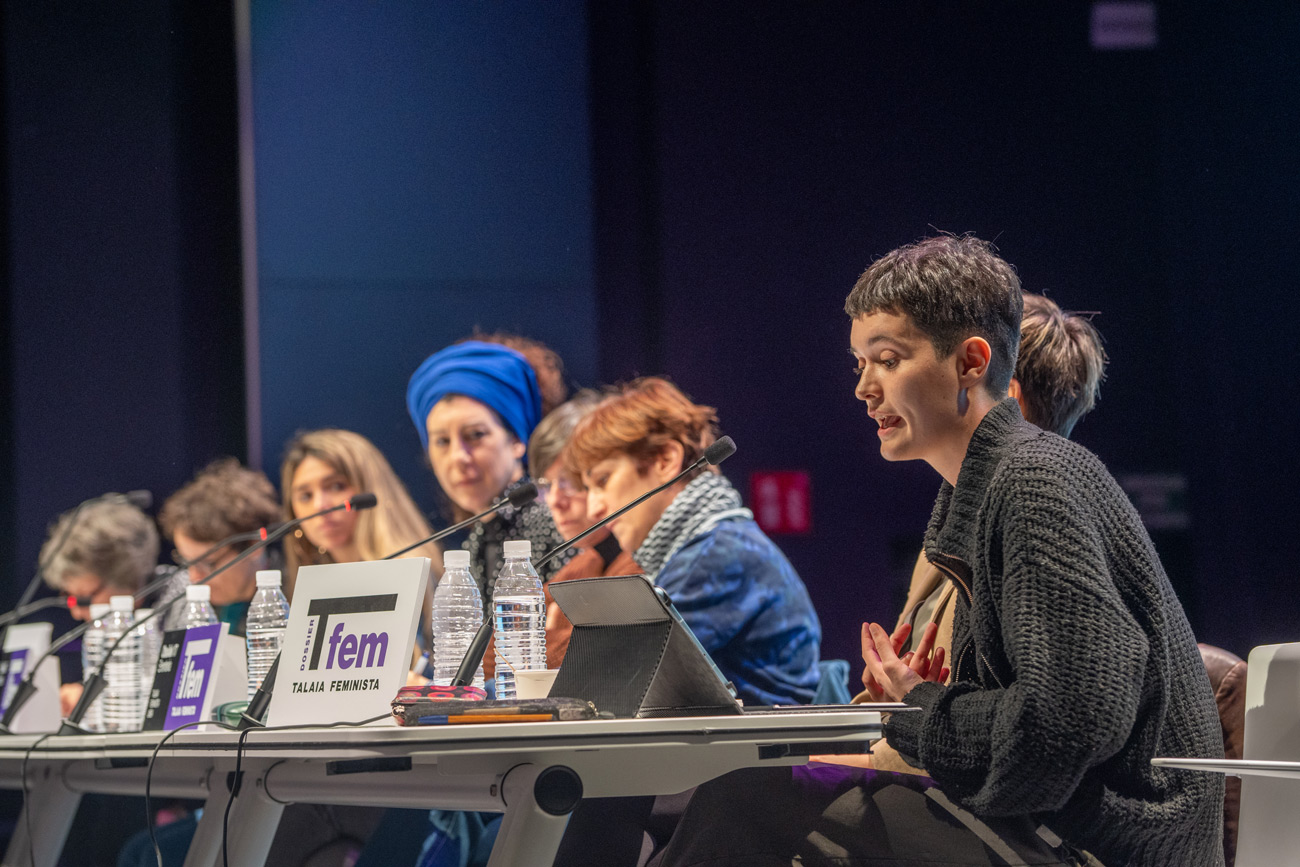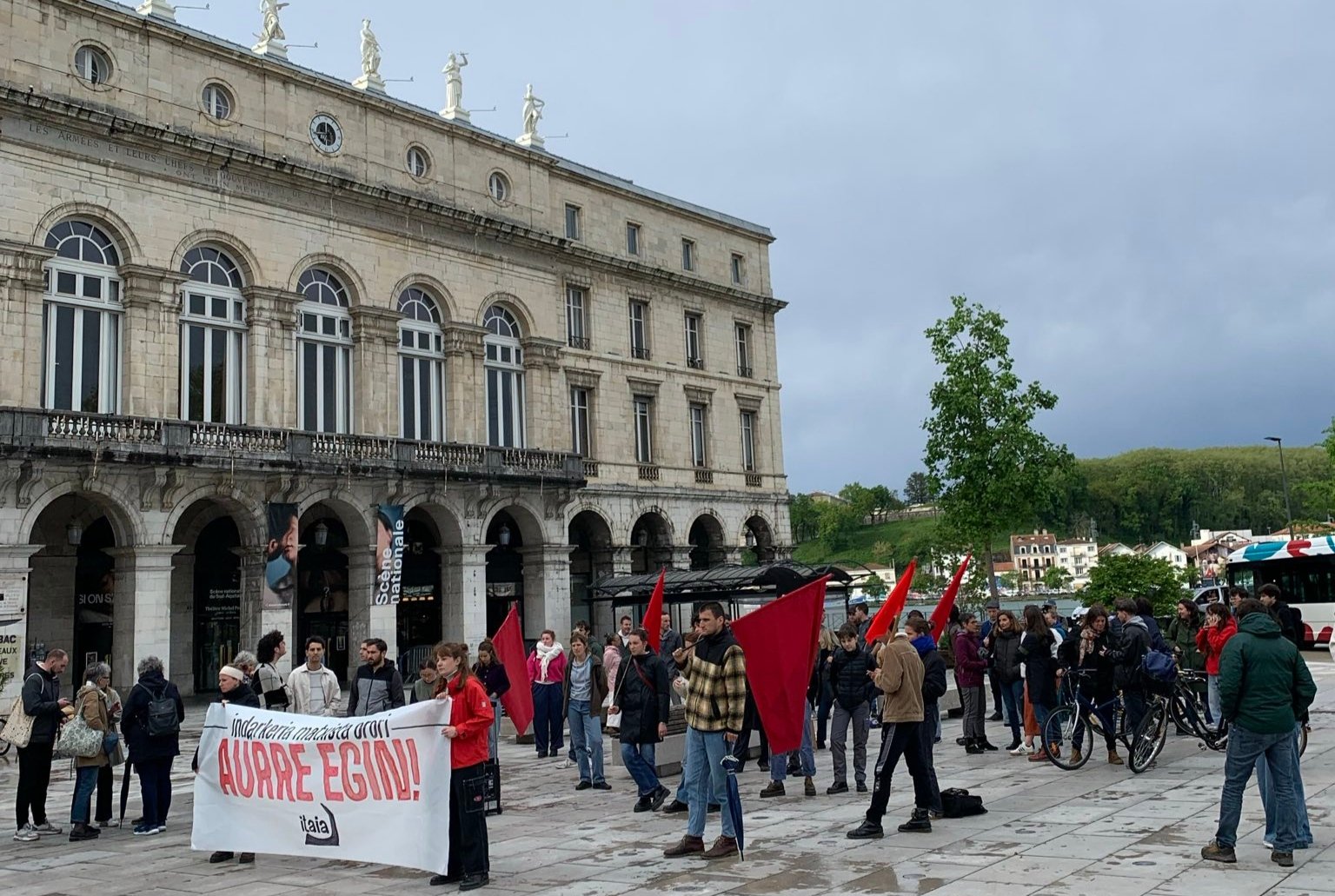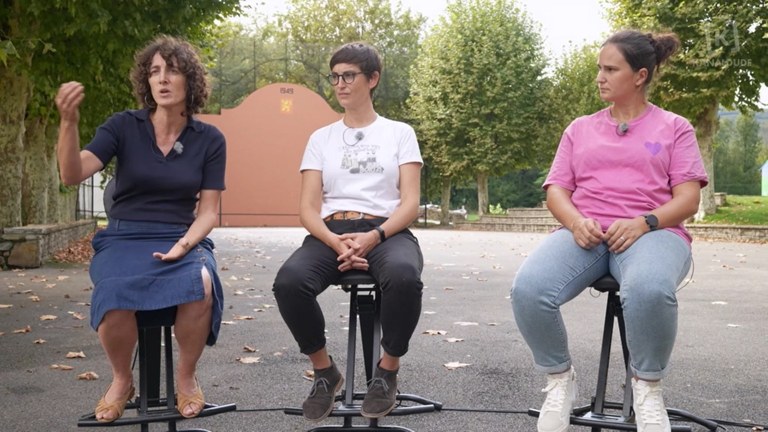The tightening of living conditions and privatization have been the main conclusions of the Feminist Watchtower in 2023
- On February 17, 170 left-wing sovereign feminist women met in the Lekuona Hall of Orereta to discuss six episodes of 2023 and to agree on the final report of the Feminist Watchtower. The elaboration of the dossier is a first step towards the elaboration of feminist transition proposals in the Basque Country.

How have feminist and independentist women read in 2023? What trends are observed and where is reflected? What specific facts? How does it reinvent and rearticulate patriarchy? These questions have been answered by 36 women from the Atalaya Feminista promoter group in the last year, and on Saturday they have closed the first dossier with the debate and contributions of 170 people gathered in Lekuona de Orereta. On the one hand, they have stressed the “influence capacity of Basque feminism” and, on the other, they have highlighted “the hardening of living conditions, the violent privatisation of welfare and the aggression against the Basque Country”.
They wanted to take advantage of the Atalaya Feminista Unea on Saturday to discuss “collectively” the conjunctural analysis of Euskal Herria, as explained by Maider Barañano and Amaia Pérez Orozco. The first report has been elaborated with the objective of analyzing Euskal Herria from the feminist point of view and offering tools for the feminist transition, and will be carried out annually. Kizkitza Gil de San Vicente explained that this first year, the Feminist Watchtower created in December 2022, has not been able to make concrete proposals to boost the feminist transition in Euskal Herria, but that next year will be put to value. In the coming weeks, they want to make the final dossier public and they will send it to unions, agents and popular movements to use it as a tool.
Six incidents marking the year
Six subsequent episodes of 2023 have been analyzed, “because the patriarchal and colonial system is seen in concrete things that occur in the lives of women”: time and climate emergency, the General Feminist Strike, increased lives, male violence, aggression against Euskera and the ban on abay.
However, they clarify that they have taken into account the holistic perspective, “because the facts analyzed are interrelated and patriarchy is a system that is reconstructed through concrete processes”. They have also come to the conclusion that organized resistance to patriarchy is interwoven. Six women with experience in different fields (Edurne Benito, Jule Goikoetxea, Amaia Perez Orozco, Lorea Agirre, Maite Barreña and Elorri Arin) have summarized the analyses and reflections carried out over a year. Next, some 170 women have met in thematic working groups and discussed the latest contributions to the final dossier.
The General Feminist Strike, the increase in life and machist violence have been the most interested, and have formed two working groups, one in each. Maider Barañano explained to the press that the selection of attendees responds to reality and shows the trends in depth.
“The reflection has been very intense and the elaboration of a comprehensive dossier covering all the diversity of Euskal Herria is very complex,” said the promoters of the Feminist Watchtower. The Lekuona Hall has been occupied by feminist and independentist women from six territories (none from Baja Navarra has participated), many of whom are known faces for having worked in feminism, popular movement or politics in Euskal Herria. The Talaia Moment is finished with the monologue and the musical program of Mirari Martiarena.

Resistance organisational capacity
Barañano presents the conclusions and recalls that influencing these keys is fundamental to the construction of the sovereign Basque Country. Setbacks and progress have been identified. Negative aspects such as the hardening of living conditions, the ecological crisis, the increase in life and the deepening of precariousness are some of the negative aspects and, therefore, the increase in inequalities, even among women. Barañano has also warned of the “hard process of privatization”, which increases the workload of women, among other things: “Dewaxing is vital. In order to continue living, the responsibility for well-being must leave families and households.” On the other hand, they have concluded that “the use of violence and fear” has increased in all dimensions, especially as a reaction of the elites and the contested sectors (aggression against the Basque Country, normalization of the agenda of the right end...).
In the positive aspects, however, they have recognized “the resistance, often local, the organizational capacity” and “the ability of Basque feminism to mark and influence the agenda”. The creation of meeting spaces between the different sectors has been considered a step forward, as has been done in the General Feminist Strike or in cases of violence, as Barañano has pointed out.
Many Basque feminists have been disappointed to learn that writer Chimamanda Ngozi Adichie has externalized pregnancy, meaning that a surrogate has fertilized her baby for money.Adichie is the author of the essay We should all be feminists, among others. They have ignored the... [+]
Indartsua, irribarretsua eta oso langilea. Helburu pila bat ditu esku artean, eta ideia bat okurritzen zaionean buru-belarri aritzen da horretan. Horiek dira Ainhoa Jungitu (Urduña, Bizkaia, 1998) deskribatzen duten zenbait ezaugarri. 2023an esklerosi anizkoitza... [+]
Gozamen aparta bezain deskribatzeko zaila dakar, norbaiten hitzak irakurri edo entzun ostean, zera pentsatzeak: “Horixe zen neu aurreko hartan azaltzen saiatu nintzena!”. Idazlea eta itzultzailea da María Reimóndez, eta galegoz aritzen da, hizkuntza... [+]
Orain arte desgaituak ez diren pertsonekin lehiatu da Uharteko Ipar Eski Taldeko Eneko Leyun eskiatzailea (Iruñea, 1998). 2024-2025 denboraldian, lehenengo aldiz parte hartu du Adimen Urritasuna duten Pertsonentzako Iraupeneko Eskiko Espainiako Txapelketan. Urrezko... [+]
Joan den urte hondarrean atera da L'affaire Ange Soleil, le dépeceur d'Aubervilliers (Ange Soleil afera, Aubervilliers-ko puskatzailea) eleberria, Christelle Lozère-k idatzia. Lozère da artearen historiako irakasle bakarra Antilletako... [+]
Endometriosiaren Nazioarteko Eguna izan zen, martxoak 14a. AINTZANE CUADRA MARIGORTAri (Amurrio, 1995) gaixotasun hori diagnostikatu zioten urtarrilean, lehen sintomak duela lau urte nabaritzen hasi zen arren. Gaitz horri ikusgarritasuna ematearen beharraz mintzatu da.
Duela aste batzuk, gurean egon ziren El Salvadorko eta Kanarietako emakumeen eskubideen aldeko hainbat aktibista. Sexu- eta ugalketa-eskubideez eta eskubide horiek urratzeak emakumeengan dituen ondorioez aritu gara; hala nola El Salvadorren berezko abortuak izanda homizidio... [+]
Zuberoako ohiturei buruzko bi liburu ditut gogoan. Batek XX. mendean aritu izan diren 180 dantzari eta soinulari aipatzen ditu. Haien artean, emakumezkorik ez da agertzen. Besteak, pastoralei egiten die errepasoa eta hor emakumeak aipatu aipatzen dira, baina omisio esanguratsuak... [+]





















